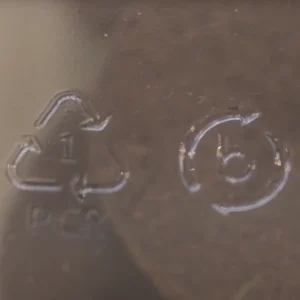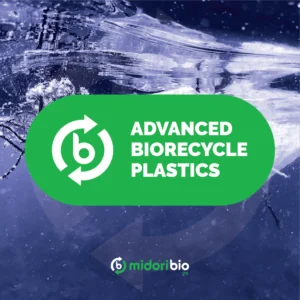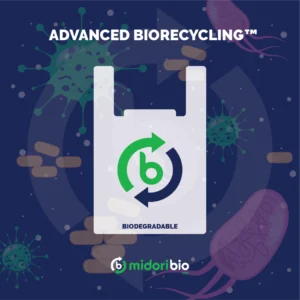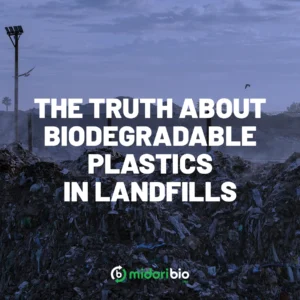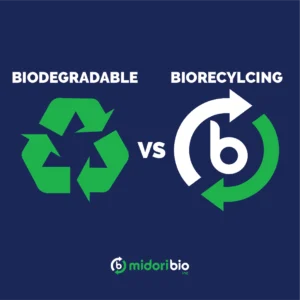The Growing Crisis of Ocean Plastic
Every year, millions of tons of plastic waste enter our oceans, harming marine ecosystems and wildlife. In response, many companies have turned to biodegradable plastics as a supposed solution. But do these materials really help reduce ocean pollution, or are they just another form of greenwashing?
In this article, we’ll explore why biodegradable plastics fail to address the plastic crisis and why Advanced BioRecycling™ offers a more effective alternative.
The Problem with Biodegradable Plastics in the Ocean
1. Biodegradable Plastics Don’t Break Down in Marine Environments
The term “biodegradable” implies that a material will naturally decompose, but this process depends on specific conditions—such as heat, moisture, and microbial activity—that are often absent in ocean environments. As a result, many biodegradable plastics persist in the water just like conventional plastics.
2. They Still Become Microplastics
Rather than fully degrading, many biodegradable plastics break down into microplastics—tiny fragments that accumulate in marine ecosystems, harming fish, seabirds, and even entering the human food chain.
3. Misleading Marketing Encourages Improper Disposal
Consumers often believe biodegradable plastics can be discarded in nature without consequences. This misconception leads to increased littering, with plastic waste ending up in waterways and oceans instead of being properly managed.
4. Lack of Global Composting Infrastructure
Many biodegradable plastics require industrial composting to degrade efficiently. However, these facilities are rare, especially in coastal regions, meaning that most biodegradable plastics end up in landfills or the ocean.
Why Advanced BioRecycling™ is the Better Solution
Unlike biodegradable plastics, Advanced BioRecycling™ is designed to work in real-world environments, including oceans and landfills. Here’s why it’s a game-changer:
Activates in Oceanic Conditions – Microbes found in marine environments trigger the breakdown process, ensuring plastics degrade effectively.
Reduces Microplastic Pollution – Unlike biodegradable plastics that fragment, Advanced BioRecycling™ helps reduce the persistence of microplastics.
No Special Facilities Required – Works in natural conditions, eliminating the need for industrial composting or specialized disposal methods.
Conclusion: Rethink Your Sustainability Strategy
While biodegradable plastics may seem like a convenient solution to ocean pollution, their limitations make them ineffective in real-world scenarios. Advanced BioRecycling™ offers a scientifically backed, scalable alternative that genuinely reduces plastic waste.


